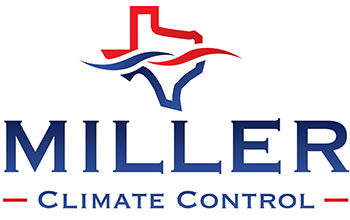
We can all benefit from saving money from time to time. An easy way to do this is by identifying energy inefficiencies throughout your home. Upgrading your HVAC system or adding a smart thermostat, for example, offers more control over your HVAC system, contributing to a more energy-efficient home and lower monthly energy bills.
Read on to learn about 4 ways you can make energy-efficient home enhancements.
1. Try Smart Home Products Like a Smart Thermostat
If you still use an older thermostat and control it manually, try taking a step toward the future by installing a smart, or Wi-Fi, thermostat – which comes with numerous features to make your home more energy efficient.
The feature homeowners like the most is having the capability to adjust their smart thermostats from anywhere they want through their smartphone or other smart device. As an example, in situations where you forget to use your thermostat before going on vacation, you can easily use your smartphone and make the adjustments.
Just like a programmable thermostat, a smart thermostat allows you to set up a schedule for your home’s temperature based on the time of day and day of the week so you’re not spending energy on an empty house. Smart thermostats also have the capability to understand your temperature preferences over time and automatically make energy-efficient corrections. They can even provide monthly energy reports that show how much energy you’re using and when so you can make adjustments to reduce costs.
If you’re curious about how to get a free smart thermostat, check with your utility company to see if there are any discounts or free smart thermostats available to you.
2. HVAC Tune Ups
Unfortunately, lots of homeowners often forget about having their heating and cooling systems maintained. While this might not seem important, inadequate maintenance can produce a number of issues, including inefficiency, breakdowns, and a shorter system lifespan.
During an HVAC maintenance service, a heating and cooling technician should examine your HVAC system, clean necessary components, and catch minor problems before they produce bigger, more expensive repair issues. Maintenance keeps HVAC systems functioning at optimal condition, which means less energy is needed to heat and cool your home. This could also help with your energy bills, prolong the lifespan of HVAC equipment, and contribute to fewer repairs.
We recommend two HVAC tune ups every year – once during the spring before summer and one in the fall before the arrival of cold weather.
3. Upgrading Your Worn-Down, Inefficient HVAC Equipment
Regretfully, like any appliance, HVAC systems have a shelf life and inevitably need to be replaced. Newer heaters and cooling equipment is much more efficient than units manufactured just over a decade ago. Thankfully, local HVAC companies like Miller Climate Control LLC can offer professional services including furnace installation in Georgetown.
Well-maintained furnaces and air conditioners can run for around 15-20 years. If your systems are within that period of time, it is often be a good idea to replace them now to minimize the risk of premature equipment failure that can leave you cold and uncomfortable if it’s a cold winter night. If your HVAC system is around 15 years old and has a problem that needs an expensive repair, it’s almost always time to replace it. As reported by the U.S. Department of Energy, installing a new HVAC system can save you approximately 20-40% on your monthly energy bills, so you’ll recoup some of the costs of putting in a new system.
A professional HVAC technician can help you find the most energy efficient HVAC system on the market. In general, look for HVAC systems that are Energy Star certified, which means the equipment meets strict guidelines made by the U.S. Environmental Protection Agency. LENNOX HVAC systems are often some of the most efficient systems around, offering both high AFUE and SEER ratings. AFUE is for heating systems and illustrates how well they convert fuel to heat. SEER, on the other hand, is used to measure the efficiency of cooling equipment.
Contact a reputable HVAC provider like Miller Climate Control LLC for air conditioning installation in Georgetown.
4. Use High Efficiency Air Filters
The next time you’re shopping for new HVAC filters, consider that not all air filters are created equally. Specific air filters are far more successful than others, leading to lower energy bills and a clean home.
The performance of HVAC air filters is rated by their Minimum Efficiency Reporting Value, or MERV rating. The MERV scale ranges between 1-20; the higher the number, the more effective the filters are. It’s important to note, though, that high-efficiency air filters can sometimes impede airflow too much based on the type of HVAC system you have. It’s beneficial to review the owner’s manual before buying a filter to find the best option for your system.

